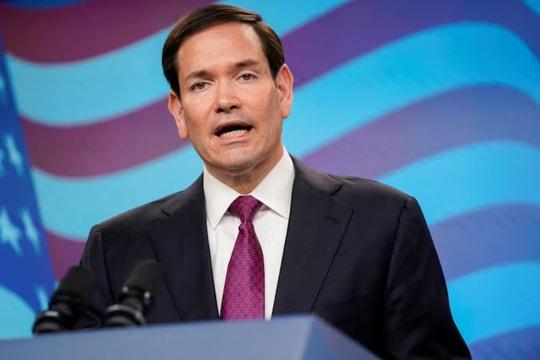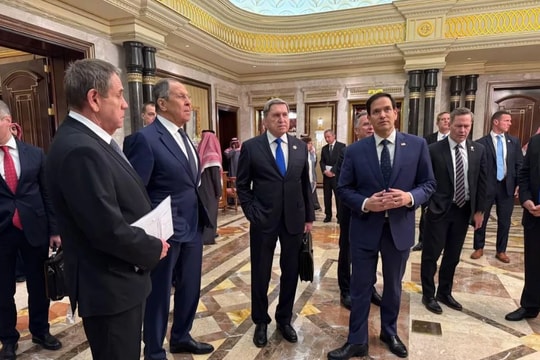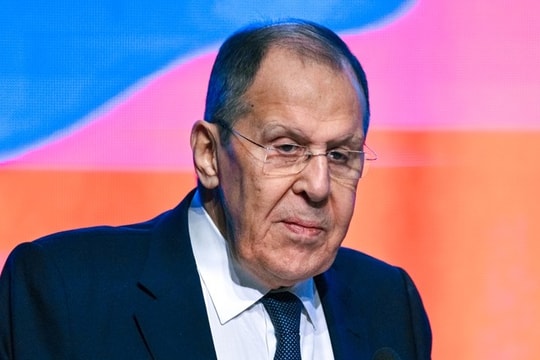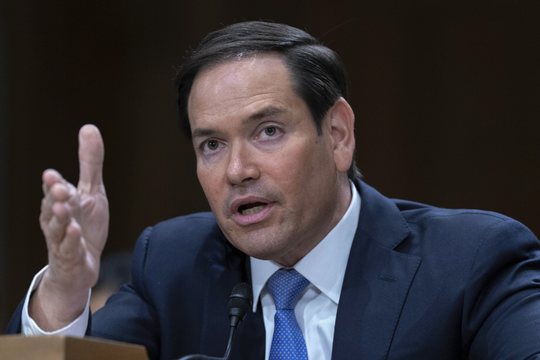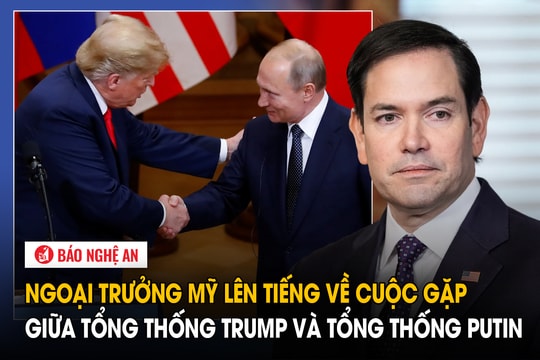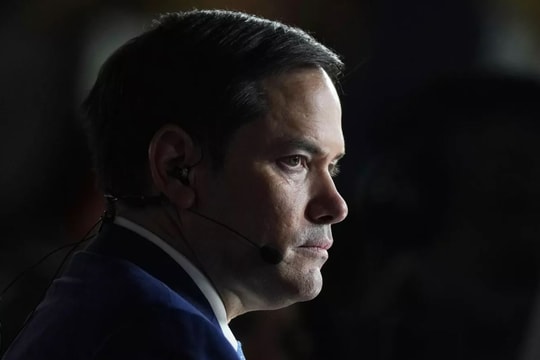US Secretary of State tells the story of going to President Ho Chi Minh's mausoleum to search for missing soldiers
Secretary of State John Kerry has revealed for the first time his return to Vietnam and his search under President Ho Chi Minh's mausoleum to dispel suspicions that American soldiers are being held there.
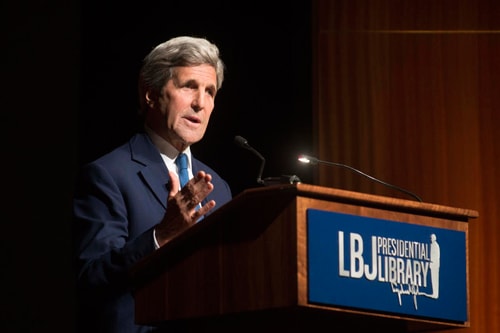 |
Secretary of State John Kerry at a conference on the Vietnam War in Texas on April 27. Photo: LBJ Library |
"A story I have never told in public, I was going to save it for my memoirs but I won't. I'll tell you a little bit tonight," Mr. Kerry began the story during a conversation at a conference on the Vietnam War in Texas on April 27.
"I had to go see the general secretary and the president (of Vietnam), convince them to allow me and another senator to go down to the mausoleum of President Ho Chi Minh because there was intelligence that there were tunnels down there and there was a possibility that people were being held.
“You can imagine the scene of me sitting with the party general secretary with a large bust of Ho above me and saying, ‘I want to go down and check if there is anyone below,’” he recalled.
He said he was later allowed by Vietnamese leaders to go down to the mausoleum to check but found no one.
"It was amazing and we did it.T"I won't tell you the rest of the story, how it happened," he said.
Mr Kerry was a naval officer who fought in Vietnam. However, he later left the military and became one of the most prominent anti-war activists, leading a protest in Washington in 1971 against the Vietnam War and denouncing it before the Senate Foreign Relations Committee as "barbaric".
Then, as a state senatorMassachusetts, he continued to contribute to the normalization of relations between the United States and Vietnam for decades.
During yesterday's conference, the US Secretary of State said that when approaching the issue of normalizing relations, he and Senator John McCain always determined that searching for prisoners of war and missing POW/MIA soldiers was a prerequisite.
However, during the process of making this program, he was surprised and impressed by the openness and willingness of the Vietnamese people to put aside past hatred.
"The recovery process revealed a lot not only about the Americans and their remembrance of those who died in the war, but also the extraordinary generosity of the Vietnamese people, who helped us recover the remains of their fallen soldiers, even though a large portion of their own, perhaps a million, would never be found. They allowed helicopters to land in villages, even though it brought back bitter memories of the war," he said. "The Vietnamese did it because they wanted to put the war behind them. They dug up fields and let us into their homes, 'houses of history,' prisons. More than once, they guided us through real minefields.
We were involved in a searchmissing and deadin warthe most important, comprehensive, and thoughtful in human history. And I think Americans should be proud of that."
The US Secretary of State said that 41 years after the war ended, the relationship between the two countries has now completely changed.
"In 1968, no one could have imagined that General Secretary Nguyen Phu Trong would visit Washington last year or that President Barack Obama would visit Vietnam next month. I am very eager to go with the president this time," he said.
He also mentioned important changes in bilateral relations as the two countries cooperate in many fields, including education, climate change, science, health, high technology, military, security, especially on the East Sea issue.
"There is no denying that our government and the government in Hanoi clearly have differences, but the good news is that we have discussed them frankly, regularly and effectively," he said.
Secretary of State Kerry will accompany President Obama to visit Vietnam next month.to emphasize common economic and strategic interests between the two countries.This will be the first time Mr. Obama visits Vietnam during his eight-year term as US president. He will also become the third consecutive US president to visit Vietnam, after Mr. Bill Clinton in 2000 and Mr. George W. Bush in 2006.
According to VNE
| RELATED NEWS |
|---|

